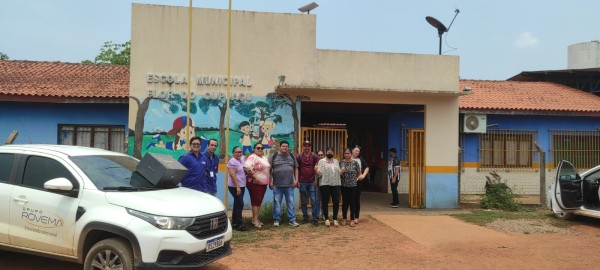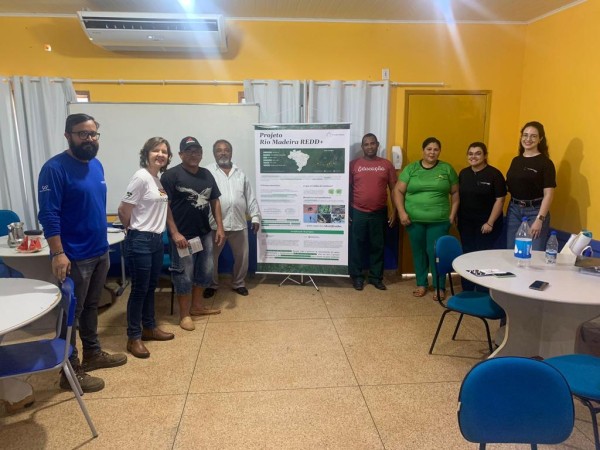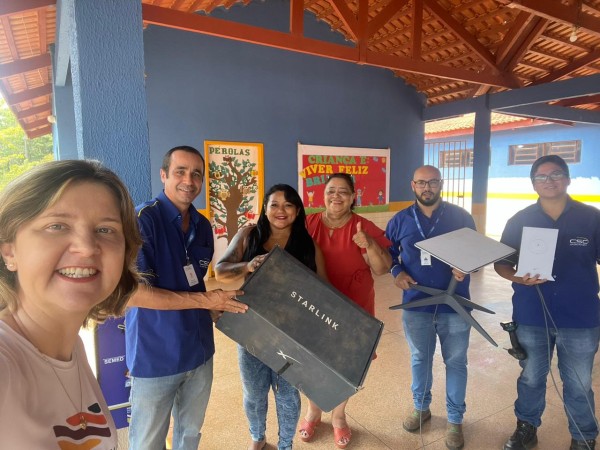Ensuring access to inclusive and equitable quality education, promoting lifelong learning opportunities for all, is one of the Sustainable Development Goals proposed by the UN. Quality education, integral to SDG 4, is one of the fronts of action for the Rio Madeira project, a initiative aimed at removing carbon from the atmosphere and conserving the standing forest in the region known as Amacro – between the states of Amazonas, Acre, and Rondônia.

By 2030, the UN’s goal is that all boys and girls complete primary and secondary education at the appropriate age and with satisfactory and relevant learning outcomes. The municipal school Flor de Cupuaçu still faces many challenges, including raising the Ideb (Education Development Index) for the more than 120 students in the school community. In 2019, the Ideb, which calculates student learning in Portuguese and mathematics, was 4.2, below the projected target.
The Rio Madeira project is directly addressing this gap. One of the major challenges for the school was poor internet connectivity, which hindered the daily organization of academic activities and, especially, computer classes. The collaborative efforts of the owners of the Rovema Group, the developers of the Future Carbon project, and the local community enabled the installation of a Starlink antenna that now ensures access for the entire community of students and teachers.

Maria Helena Oliveira, the director of Flor de Cupuaçu school, assesses the high impact of the action on the school community. “Certainly, there has been an improvement in the performance of our students and a much more active participation, with more interactivity. They can now research, do assignments with consultations from different sources, and that is wonderful. Before, this was not possible because they did not have access to what was happening outside the region. Now our dream is to structure the computer room,” says the director.

The project is an initiative of private owners who have been in the region for over 40 years and work directly in partnership with local communities, both within the farm with their employees and families, and with the surrounding community. The Rio Madeira project has undergone important validation stages with the International Certification Body VERRA/VCS, and international auditors have visited and verified on-site, confirming the positive impact of the Rio Madeira project in the region. The socio-environmental impact of Rio Madeira, integrating the SDGs of quality education, poverty alleviation, health and well-being, decent work and economic growth, sustainable cities and communities, sustainable consumption and production, terrestrial life, and, of course, action against climate change will ensure an improvement in the quality of life for these communities and become a milestone in the carbon credit market 2.0 in Latin America. Benefit-sharing with the community and commitments to biodiversity conservation, all these elements are evident in the Rio Madeira project..
More information: http://www.linkedin.com/company/futurecarbongroup/
Media Contact
Contact Person: Media Relations
Email: Send Email
Country: Brazil
Website: https://futurecarbon.com.br/home-en/
